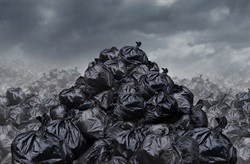Japan and South Africa recently shared their knowledge and experience at a Sustainable Waste Management Seminar hosted by the University of Cape Town (UCT) and endorsed by the Institute of Waste Management of South Africa (IWMSA). Waste management is a challenge faced by every country on every continent in the world. Issues faced by South Africa, while somewhat unique, can certainly benefit from the leanings of those in other parts of the world.

© freshidea - Fotolia.com
IWMSA president, Dr Susan Oelefse, believes is vital to making a real difference in the waste management arena. "Waste management is a global concern. No two countries share exactly the same challenges and events like these allow us to share our unique knowledge and experience, and learn from the experience and expertise of others."
Concerted efforts required
In the opening address, Minister Counsellor Yukio Yoshii said that historically Japan was one of the most environmentally damaged nations and that concerted efforts were required to combat the effects of the environmental damage caused by rapid economic growth. He also pointed out that over the next three years, Japan will spend $2bn in development assistance in areas such as air pollution, water pollution and waste management.
Susanne Karcher, an integrated resource and waste minimisation specialist, discussed the issues facing South Africa and in particular, the effects of urbanisation on waste. Karcher also made an interesting point about the definition of 'waste' and noted that in many instances, what some might consider waste, could be considered to be material by others. Karcher proposed that we relook the definition of waste and pay special attention to making a distinction between 'waste' and 'material'. She also pointed out that the reason there is so much waste is because we keep buying things we don't need with money we don't have to impress neighbours we don't like.
Fuel from plastics
Akiko Robinson from the CFP Corporation in Japan, spoke about the opportunities that exist for converting plastics into fuel. She proposed that instead of sending plastics to landfill sites, the plastic be cleaned in a special washing machine and then separated into many different categories of plastics. She explained that while PA, PET and PVC products cannot be converted to oil, PP, PE and PS plastics can. Three other types of plastics can further be converted in various products - LDPE plastic can be used to make pallets and other building materials; PET plastics can be turned into fibre for making clothes and shoes; and PP plastics can be turned into containers.
In his closing remarks, Professor Harro von Blottnitz from the Chemical Engineering Department at the UCT, said the challenges of achieving sustainable waste management solutions and getting really good at reducing, reusing and recycling, require a new kind of engineer - one who can avoid ecologically unintelligent product designs and poor operating practises, and one who has the cultural competencies to learn from the successes of others, of which the Japanese team presented plenty.

































